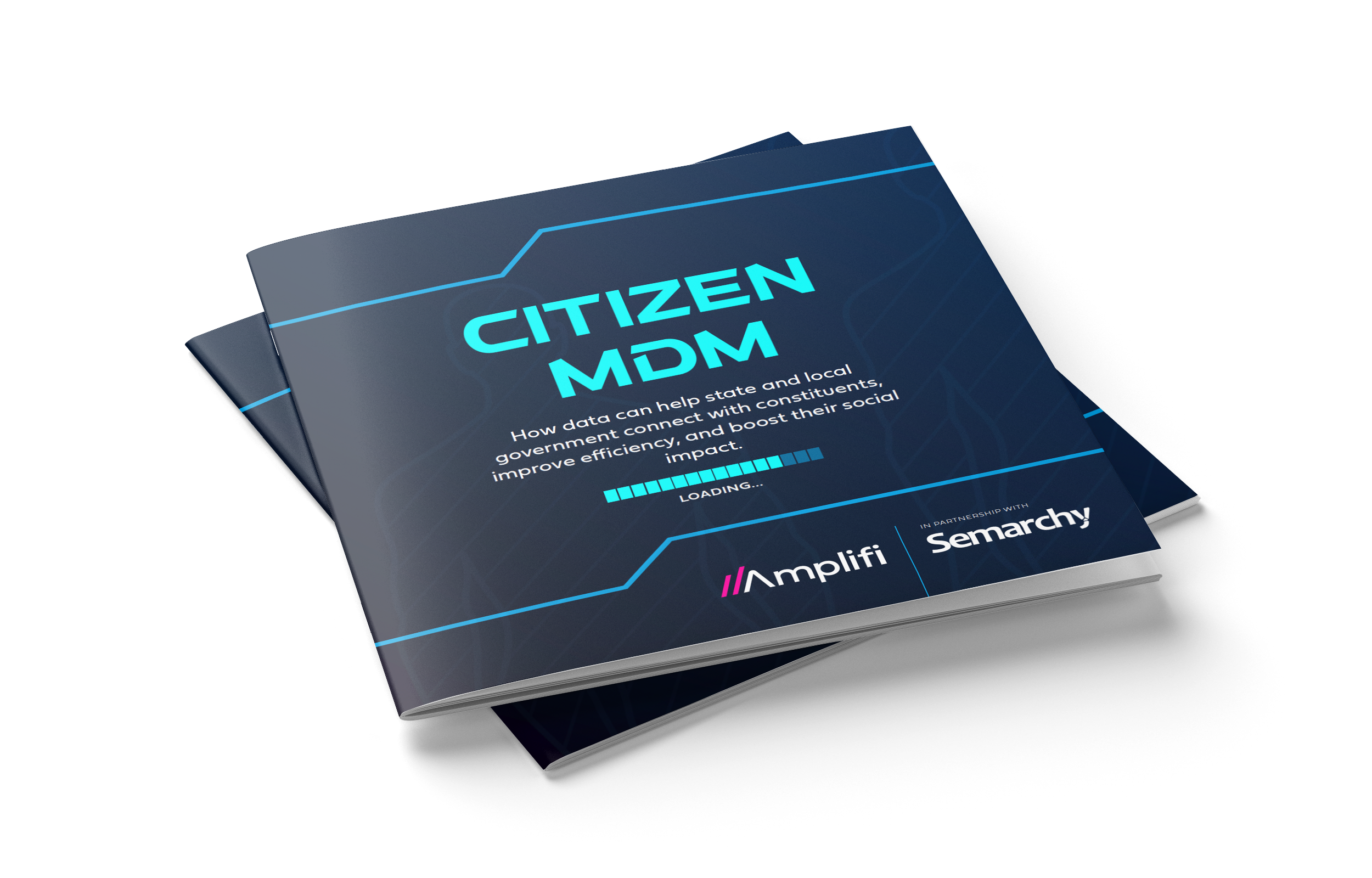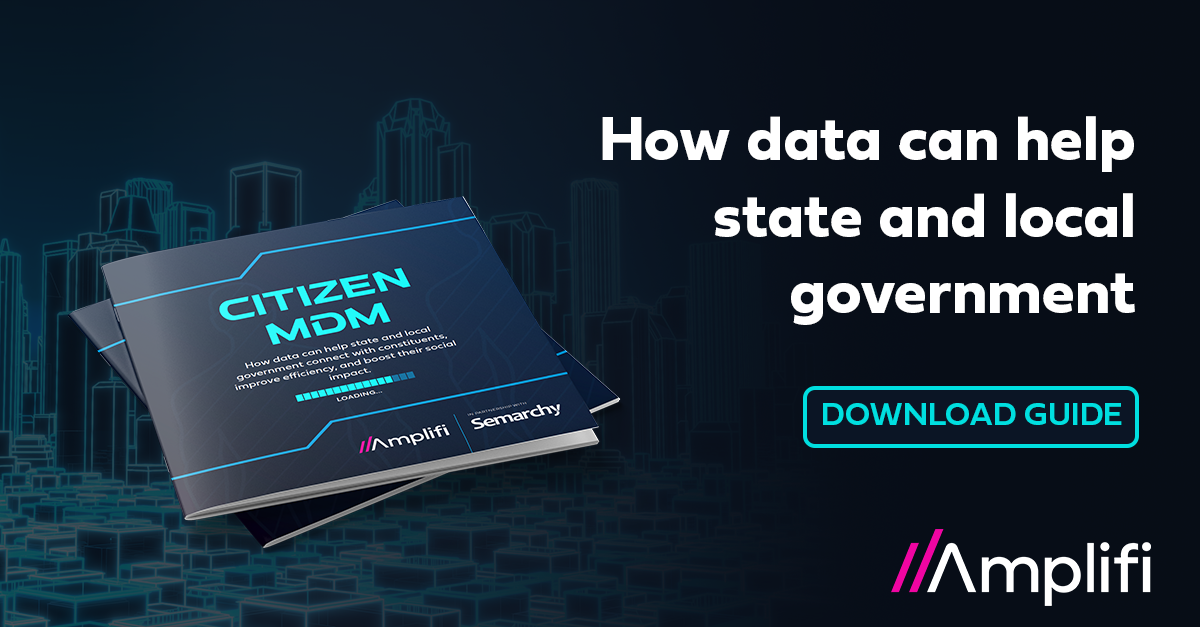Local and state officials: how well do you know your citizens? Do they feel understood? Are their needs consistently met?
Understanding your residents as people—not just names attached to a postal code—is vital to maintaining resident satisfaction and keeping your citizens engaged. Yet data issues often prevent local authorities from getting the complete picture of their residents, creating problems that should be easy to avoid.
Here, we look at some of the biggest frustrations your residents experience when they engage with local government — and how a single source of data could provide the answer.
What’s frustrating your citizens?
Passing the buck
Nothing is quite as frustrating as being passed from one department or representative to another. When residents repeatedly explain a problem or concern, they become increasingly irritated, and, unfortunately, your staff often bears the brunt.
Fostering a sense of community is important for local authorities, but residents won’t feel that ‘community spirit’ if their interactions with agencies are impersonal, distant, and frustrating. Ideally, every department should have access to centralized data on residents. That way, no matter which employee assists with a citizen’s inquiry, they have all of the information they need to find a solution — and communicate with the resident in a personal, considerate way.
Lack of sensitivity
Some of your residents will use your services for sensitive matters, like social care, health, and well-being. Your constituents should expect to receive the same level of care and sensitivity whether they are contacting you about garbage collection or important social concerns.
Employing effective data management practices ensures that accurate background information is available to support the needs of vulnerable citizens. Tightening your data practices helps you safeguard their data while delivering the best possible service, ensuring their needs don’t fall through the cracks.
Time-consuming tasks
Thanks to the digital revolution, people today expect everything in an instant. Of course, that’s not always possible for every service — some matters are more complicated or sensitive than others. But basic government-related tasks should be quick and easy for residents to complete online.
Need to update your vehicle registration? Submit a complaint? Change your personal details? Whatever the reason, residents shouldn’t have to call you (and sit on hold for 20 minutes) to carry out these simple actions. They also shouldn’t have to complete a lengthy form and fill in every personal detail every time they have a problem or request.
With effective data management, citizens should be able to access information online, with self-service portals that centralize these services and make them quick and easy to complete. Your employees will also benefit from the time-saving automation these data services provide.
What’s stopping local governments from addressing these frustrations?
According to a Deloitte report on data in the public sector, “In virtually every level of government, constituents expect their government to responsibly apply insights from data to achieve goals and fulfill anticipated outcomes.”
So, what’s holding governmental agencies back from delivering? The short answer: it’s a data problem. Specifically, poor data management.
In our guide to mastering public sector data—Citizen MDM—we describe some of the biggest issues impacting local government’s data strategies. We share how the root cause of many resident’s frustrations boils down to information not being available in the right place, at the right time.
Let’s look more specifically at what’s getting in the way.
Data siloes
There’s no shortage of data in local government. The problem is that those vast volumes of data can’t always be accessed when and where they’re needed. Data is pocketed across different departments, on disparate systems, and in various formats. This siloed state makes it impossible for information to flow easily between one agency or team to another. Furthermore, in some cases, departments still struggle to digitize paper records and advance beyond manual data reporting, making it harder to centralize complete, accurate records.
Legacy technology
One of the biggest causes of those data siloes? Legacy technology. These aging, and typically disconnected systems, often prevent agencies from tackling their data problems and unifying information into one source. In particular, the disconnect between departments makes it difficult to join the data dots. Incompatible on-premise software and systems prevent access to data and make the idea of a technology upgrade a daunting prospect.
Migration
Speaking of daunting prospects, the fear of migration to new digital processes has become a significant roadblock. With so much personal information at stake and such varied levels of digital competency across the organization, there are many ways that migrations can go wrong if they aren’t handled correctly. Yet migrations don’t need to feel like a sudden upheaval with the right groundwork and support — including taking the right steps to seamlessly migrate every department to a new, central data solution (like an MDM platform).
Lack of data literacy
As discussed in our Citizen MDM guide, data literacy is a major challenge. Progress has been made at the federal level, thanks to a national data strategy and the Evidence Act. Yet there’s work to do on the state and local level to overcome gaps in knowledge and skill sets. Greater training, technology, and tools are needed to encourage a workforce that actively and routinely leverages data for decision-making and collaboration.
How to achieve the ‘golden record’ for every citizen
The only surefire way for local authorities to address their citizens’ frustrations is to establish a ‘golden record’ on every resident: one centralized source of truth that can be accessed throughout the organization.
Yet getting your hands on the golden record isn’t as simple as buying the right software and plugging it in. First, you need to break down data siloes, address your data quality, implement robust data governance, and tackle data literacy with change management across the organization. When addressed holistically, data management also includes selecting the right technology for your needs and ensuring everyone knows how to use it effectively.
If your citizens—and employees—are feeling the frustration of poor data management in your local government, read our guide written in partnership with Semarchy to learn how data can help you to connect with residents, improve efficiency, and help your community thrive.
Download our guide to Citizen MDM!
 In this guide, published with our partner Semarchy, we cover how you can better serve your citizens through better data management, including:
In this guide, published with our partner Semarchy, we cover how you can better serve your citizens through better data management, including:
- How to create a single version of the truth for every citizen
- Building a business case with the benefits of ‘good’ data management
- How to combat data siloes around your organization
- Creating a data culture and general understanding of data literacy
- Assessing your citizen data journey, and how to get where you need to be…


